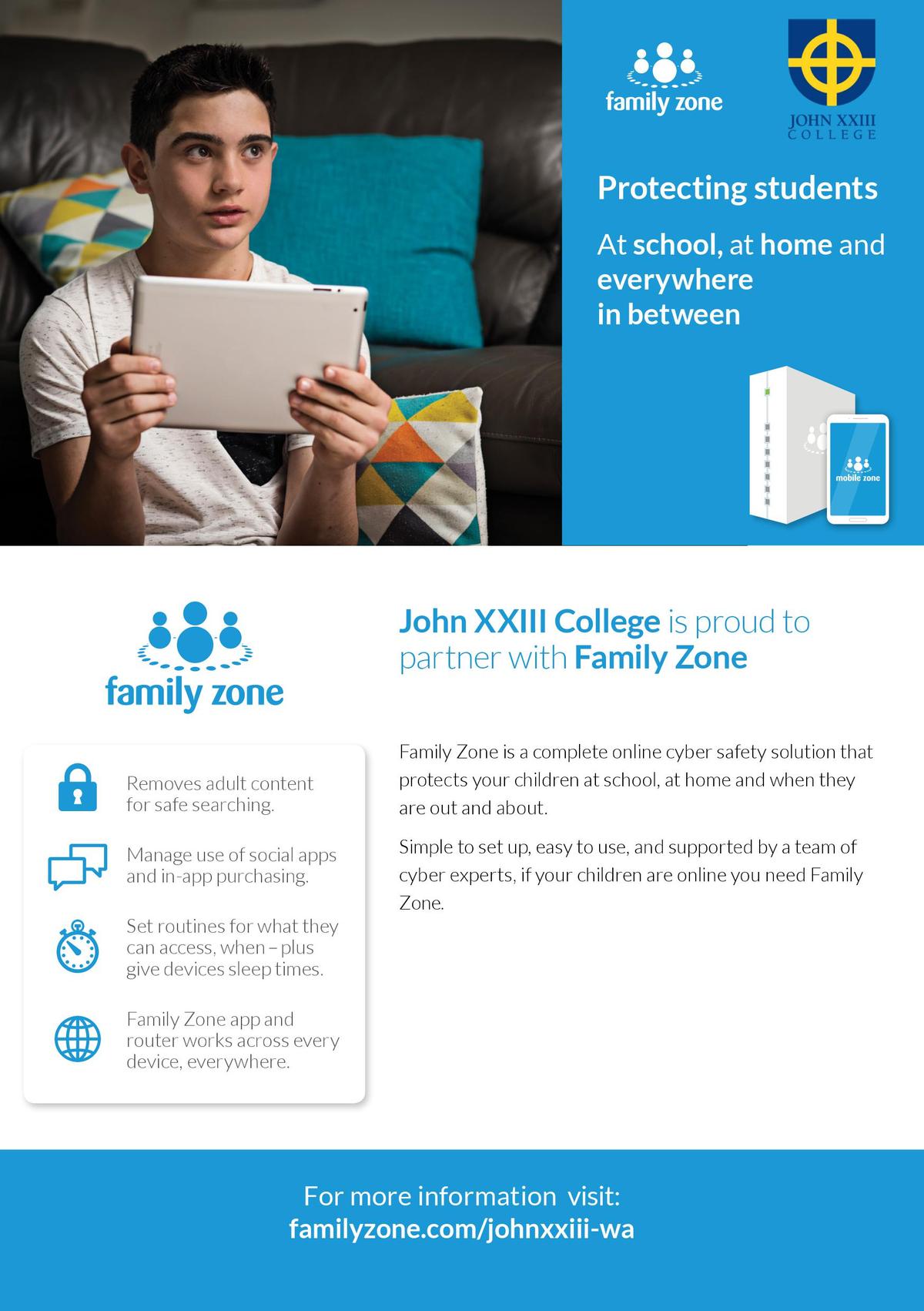Family Zone & Cyber Safety

Download Family Zone
Make use of the Family Zone Accounts which we are offering to John XXIII College families for free, as part of our College contract negotiations until 2020.
By setting up a private Family Zone account, you can apply age-appropriate parental controls on every device your child has access to, in any location. To find out more visit https://www.familyzone.com/johnxxiii-wa
FaceApp facing privacy backlash
It’s more or less a digital party trick: an app that uses artificial intelligence to produce plausible alterations to facial characteristics - either ageing subjects’ images or making them appear younger.
But ever since the age filter on top-ranking photo-altering app FaceApp debuted a few weeks ago, it's been ageing disgracefully, as privacy concerns mount.
RUSSIANS NOW OWN ALL YOUR OLD PHOTOS, one tabloid headline screamed this week. It was a reference to the app’s Russian-based developers, Wireless Lab of St. Petersburg - and the fear that the app was uploading unsuspecting users’ entire photo galleries.
Fake news? Mostly yes - but a little bit no.
When a photo is uploaded to the app’s servers, other information gets passed along as well, including the user’s device model, device ID and version. That’s pretty normal for most apps.
But in the case of FaceApp, the photograph the user wants to alter is also stored on the app’s servers.
"When you're 80, and you still want to go to Hogwarts." There's no doubt the FaceApp age-filter is huge fun, but experts say users need to face up to some uncomfortable facts.
In a statement, the company insists that “most images are deleted within 48 hours” of upload. Nor are the servers in question located in Russia but in the US.
But that hasn’t stopped US lawmakers from demanding both the FBI and the Federal Trade Commission investigate the app.
Some independent experts insist that the panic is overblown. There is no evidence that FaceApp is somehow secretly uploading entire photo galleries, they say.
But other concerns remain. One is that the app - like so many others - failed to alert users about how their data was being stored.
Your face is now a form of copyright where you need to be really careful who you give permission to access your biometric data."
More worrying still is the clause in FaceApp’s terms and conditions that grants the company worldwide rights to user photographs. So of course do many other services and apps - Facebook included. (And Facebook has nearly 2.5 billion monthly active users to FaceApp’s 80 million.)
Where’s the danger in that, you ask?
Technology experts point out that facial recognition will be used increasingly to gain access to critical private information, such as banking credentials.
“Your face is now a form of copyright where you need to be really careful who you give permission to access your biometric data,” one specialist told journalists this week.
“If you start using that willy-nilly, in the future when we’re using our face to access things, like our money and credit cards, then what we’ve done is we’ve handed the keys to others.”



